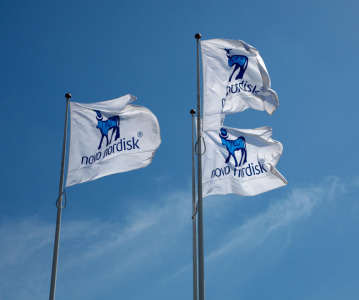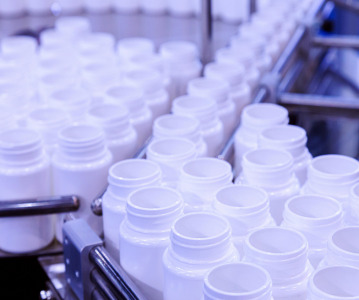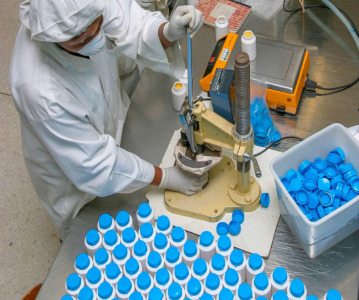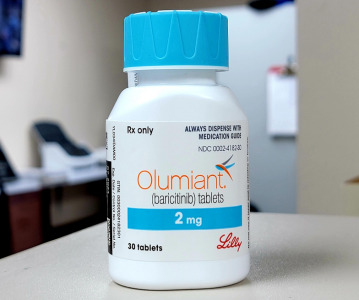CPHI Webinar Series: Latest Approaches for Large Volume Drug Delivery

Innovation in the design and development of large volume drug delivery devices can solve the challenge of accommodating the increasing trend towards patient self-administration and home care while at the same time ensuring that drugs that require intravenous administration are delivered correctly and safely.
This was just one of the messages that came out of a recent CPHI Webinar in partnership with Pharmapack, Latest Approaches for Large Volume Drug Delivery, sponsored by Cambridge Design Partnership.
Aurelio Arias, Senior Consultant, European Thought Leadership, IQVIA told the webinar audience that while biologics has risen to be one of the key drivers of growth from a value perspective, one of the problems was that they need an infusion or injectable mode of administration as opposed to some of the more convenient traditional oral therapies.
“This has led to a lot of research on how to bring about better ways either through convenience or through other benefits such as reducing pain or any adverse reactions at the point of injection,” he said. “It’s gone about bringing some new innovation in this area.”
He added that this trend was starting to benefit healthcare systems through potentially moving patients from the hospital setting to home care “and in doing so we’re seeing rapid growth in the source of injectable technology such as pre-filled syringes and auto-injectors that actually allow for that flexibility within the healthcare system.”
Karla Sanchez, Biomedical Engineering Consultant, Cambridge Design Partnership, provided an overview of best practice in partner and device selection for large volume delivery.
She explained that developers of On-Body Delivery Systems (OBDS) usually try to combine the features of known technologies such as infusion pumps and autoinjectors: “What we want to do is give as much autonomy as possible to the patient; they are at the centre of the design – we want to make it as user-friendly as an autoinjector but also addressing the more challenging aspects of the longer delivery time and larger volume.”
Steve Augustyn, Senior Consultant and client manager, Cambridge Design Partnership explained that although OBDSs fit into the overlap area between infusion pumps and autoinjectors, “they are technically a new standard of device: they’ve got particular challenges that you don’t see with needle-based injection systems and they behave in a different way to infusion pumps.”
However, he added that there are standards already published that can assist designers in establishing the requirements for large volume injection devices: “Considering these standards and how they apply to a development programme can help ensure a successful design verification.”
Watch the webinar in full here for a comprehensive overview of the large volume drug delivery challenge, and the most innovative solutions on the market today for improving patient adherence and experience.
About the Speakers:
Aurelio Arias, IQVIA
Aurelio is a Senior Consultant in the European Thought Leadership team based in IQVIA’s London office.
His primary focus is on off-patent markets where he generates evidence-led insights with a view to spark high-level discourse in biosimilars, generics and value added medicines. He is considered a subject matter expert in these areas where he speaks at numerous conferences worldwide, presents to clients and engages in consulting projects in an advisory capacity.
Prior to IQVIA, Aurelio has worked as a strategy consultant in Life Sciences for LEK and Accenture and in R&D for Pfizer and GlaxoSmithKline.
Steve Augustyn, Cambridge Design Partnership
Steve is an engineering manager and product designer with over 20 years of experience with medical devices. For the twelve years prior to Joining CDP, Steve worked for a leading medical device consultancy developing award winning devices for the largest pharmaceutical and medical device companies in the world.
Steve is a BSI recognised expert on injection devices and has been a member of the ISO TC-84 committee (Needle Based Injectors) for over six years. His professional experience includes working as a mechanical engineer and industrial designer in the U.K., Hong Kong and the United States. His broader product experience includes computer peripherals, domestic appliances, marine electronics, high-speed paper handling machinery and printers.
Karla Sanchez, Cambridge Design Partnership
Karla is a mathematical modeller, researcher and bioengineer with years of experience in product development. She obtained her PhD from Imperial College London where she focused on modelling blood flow of the cerebral vasculature and distribution of cerebrospinal fluid. She has also worked alongside clinicians and academics to study blood flow in the kidney and complications of chronic kidney disease.
In her industry career she has managed several successful projects, launching a large range of infusion sets, orthopaedic devices and surgical instruments. At CDP she works across the healthcare sector, with particular emphasis on Drug Delivery devices, cardiovascular and renal technology, and novel diagnostic tools. She is an enthusiastic STEM ambassador and a keen cyclist and runner. She holds a honorary visiting researcher position at Imperial College London.
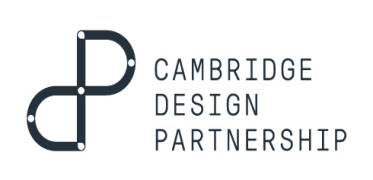
Related News
-
News Women in Pharma: Moving beyond discussions and into best practice at CPHI Milan
In this second CPHI Milan special of our monthly series, we cover the key takeaways from the Diversity & Wellbeing track held on October 10, 2024. -
News AstraZeneca invests in AI collaboration for cancer drug trials
The British-Swedish pharmaceutical giant is partnering with biotechnology firm Immunai Inc to increase the efficiency of some cancer drug trials. -
News Ozempic and Wegovy prices questioned as Novo Nordisk faces US Senate hearing
The CEO of Novo Nordisk was grilled during a US Senate committee hearing on September 24, 2024, in which the exorbitant prices of the Danish company’s blockbuster drugs Ozempic and Wegovy were called into question. -
News The BIOSECURE Act: implications for the pharma supply chain
On September 9, 2024, the US House of Representatives voted to pass the bill titled the BIOSECURE Act (the Act), which lists several Chinese companies in the pharmaceutical supply chain. The Act will prohibit American companies from contracting or doin... -
News On Track at CPHI Milan: Thermo Fisher Scientific Track Sponsor interview
With CPHI Milan just around the corner, we sat down with some of the sponsors for this year’s conference tracks to discuss the most pressing topics in pharma. -
News CPHI Milan Speaker Spotlight: Pharma Manufacturing and Localisation in Africa
In the run-up to CPHI Milan, we sit down with some of the experts and thought-leaders speaking at this year’s conferences. -
News US BIOSECURE Act passed by US House of Representatives
The controversial act, which has already impacted several foreign companies operating in the US, was passed by the House of Representatives on September 9, 2024. It is now headed for the US Senate before it can be signed into law by President Joe Biden... -
News Eli Lilly licenses rheumatoid arthritis manufacturing in Africa
American pharmaceutical company Eli Lilly has signed a partnership with Egyptian organisation Eva Pharma to localise manufacturing of rheumatoid arthritis treatments in Africa.
Recently Visited
Position your company at the heart of the global Pharma industry with a CPHI Online membership
-
Your products and solutions visible to thousands of visitors within the largest Pharma marketplace
-
Generate high-quality, engaged leads for your business, all year round
-
Promote your business as the industry’s thought-leader by hosting your reports, brochures and videos within your profile
-
Your company’s profile boosted at all participating CPHI events
-
An easy-to-use platform with a detailed dashboard showing your leads and performance
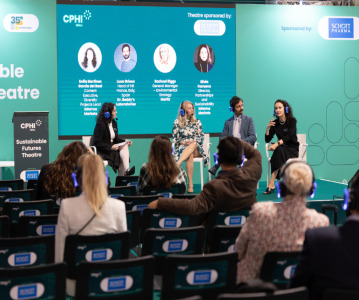
.png)
